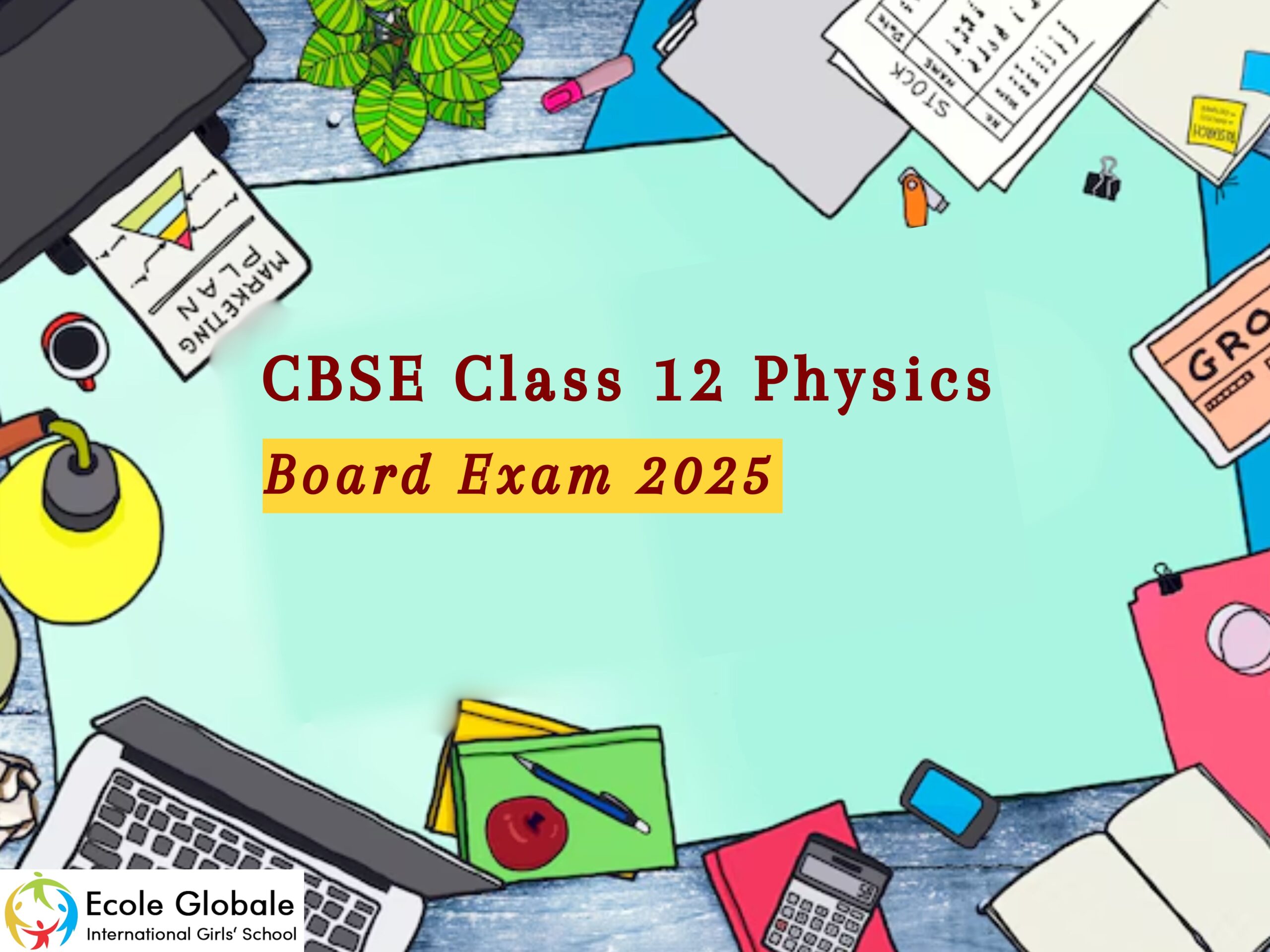In anticipation of the CBSE schools in India Class 12 Physics Board Examination 2025, subject experts have emphasized the significance of three core units: Electric Charges and Fields, Electrostatic Potential and Capacitance, and Current Electricity. According to experienced educators, a strong understanding of these topics, coupled with strategic practice, can enhance students’ performance in the high-stakes examination.
Key Units to Focus On

- Electric Charges and Fields:
Educators recommend revisiting the fundamentals, including properties of charges, Coulomb’s law, and electric field concepts. Students should be comfortable interpreting field line diagrams and applying the principle of superposition. A clear conceptual base here sets the stage for tackling more advanced electrostatics problems. - Electrostatic Potential and Capacitance:
This unit often features a variety of theoretical and application-based questions. Students should prioritize understanding potential difference, equipotential surfaces, and the physics behind capacitors. Special attention to parallel plate capacitors, dielectric effects, and the derivation of energy stored in a capacitor can prove valuable when faced with both short and long-answer questions. - Current Electricity:
Familiarity with circuit diagrams, Kirchhoff’s laws, emf and internal resistance, as well as the potentiometer principle, is crucial. Since this section can include complex numerical problems, practicing a range of circuit-based numericals helps build the accuracy and speed required during the exam.
Question Types and Strategies

Theory and Applications:
Experts anticipate a balanced mix of direct theory questions, calculation-driven numericals, and scenario-based queries. Students may encounter field line illustrations, thought experiments, or real-world applications that test conceptual clarity rather than mere rote memorization.
Derivations and Diagrams:
Neatly drawn circuit diagrams, step-by-step derivations, and well-organized reasoning are often rewarded. Clear presentation can help secure marks in descriptive sections, where partial credit is given for logical steps and accurate representations.
Graphical and Conceptual Reasoning:
In addition to traditional numericals, some questions may require interpreting graphs or explaining experimental setups. Understanding the underlying principles is key to tackling these scenario-based tasks confidently.
Preparation Tips from Experts

- Strengthen Fundamentals:
Focus on core definitions, principles, and the “why” behind each concept. This foundational understanding makes it easier to handle both direct and application-based questions. - Practice Numericals and Derivations:
Regularly solving sample papers, previous years’ questions, and a variety of exercises improves both speed and accuracy. Familiarity with standard derivations ensures smoother handling of complex problems under exam pressure. - Refer to the NCERT Textbook Thoroughly:
Experts emphasize that the NCERT textbook remains a primary resource. A careful reading helps students avoid conceptual gaps and ensures coverage of all essential details. - Maintain Balanced Study Habits:
While these three units are crucial, maintaining a consistent study schedule for the entire syllabus is essential. A comprehensive approach ensures that students are well-prepared to face any question pattern.
Outlook
As the exam date approaches, students are encouraged to refine their understanding, continue practicing diligently, and maintain a calm, confident attitude. By focusing on the recommended units and applying expert strategies, candidates can improve their chances of performing well and achieving their academic goals in the CBSE Class 12 Physics Board Examination 2025.









